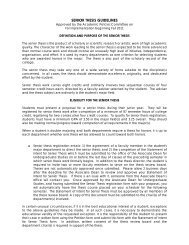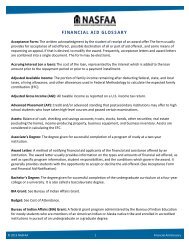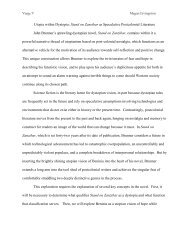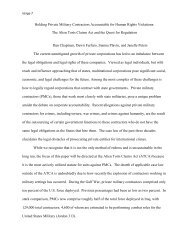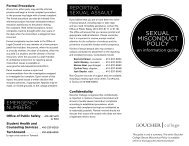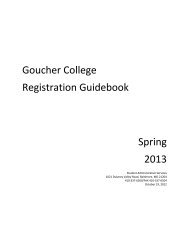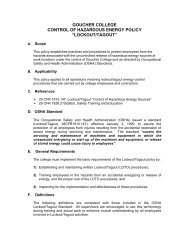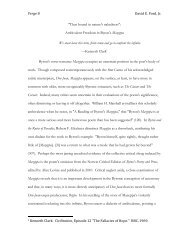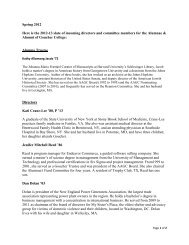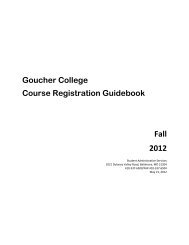Abraham Lincoln and the Northern Anti-War Press
Abraham Lincoln and the Northern Anti-War Press
Abraham Lincoln and the Northern Anti-War Press
Create successful ePaper yourself
Turn your PDF publications into a flip-book with our unique Google optimized e-Paper software.
Verge 6 Wer<strong>the</strong>imer 4<br />
Montgomery Blair, <strong>the</strong> Postmaster General, sent out an order for <strong>the</strong> city‟s anti-war papers to be<br />
excluded from <strong>the</strong> mails. This measure had a devastating effect on <strong>the</strong> targeted publications.<br />
“Almost <strong>the</strong> entire distribution of newspapers in 1861 was done through <strong>the</strong> mail.” Denying <strong>the</strong><br />
papers access to <strong>the</strong> mail “very clearly meant <strong>the</strong>ir end” (Sprague 144).<br />
The h<strong>and</strong>ful of newspapers affected by <strong>the</strong> government‟s order responded in differing<br />
ways. In <strong>the</strong> case of <strong>the</strong> Journal of Commerce, owner <strong>and</strong> editor Gerard Hallock had written <strong>the</strong><br />
editorials that enraged <strong>the</strong> government. As Hallock would later state, he could not “contend with<br />
<strong>the</strong> government” <strong>and</strong> <strong>the</strong>refore entered into negotiations with <strong>the</strong> authorities. He agreed to sell<br />
his share of <strong>the</strong> paper in order to see it continue its publication. Two weeks later, <strong>the</strong> Journal<br />
resumed its distribution through <strong>the</strong> mail (Sprague 144-145).<br />
The Daily News, ano<strong>the</strong>r of <strong>the</strong> opposition papers excluded from <strong>the</strong> mails, was owned by<br />
NYC congressman Ben Wood, whose bro<strong>the</strong>r, Mayor Fern<strong>and</strong>o Wood, had previously proposed<br />
that <strong>the</strong> city of New York secede from <strong>the</strong> Union. Ben Wood attempted to combat <strong>the</strong><br />
government‟s measure by using private delivery services to send copies of <strong>the</strong> paper West <strong>and</strong><br />
South where <strong>the</strong>re was more anti-war sentiment. The federal government countered this move by<br />
ordering that all copies of <strong>the</strong> paper throughout <strong>the</strong> country be seized <strong>and</strong> confiscated. The extent<br />
of <strong>the</strong> government‟s vigilance was such that “one newsboy in Connecticut was arrested <strong>and</strong> sent<br />
to prison for selling [copies of <strong>the</strong> Daily News].” Wood ultimately realized that <strong>the</strong> paper was<br />
doomed to financial ruin <strong>and</strong> he had no choice but to cease publication. He poignantly noted that<br />
<strong>the</strong> papers were “confiscated by Government officials, acting without warrant or process of law”<br />
(Sprague 146).<br />
Many newspaper editors were unable to look past <strong>the</strong> politics of <strong>the</strong> moment <strong>and</strong> rejoiced<br />
in <strong>the</strong> fate of <strong>the</strong> Daily News. As Sprague relates, “James Gordon Bennett‟s Herald was



